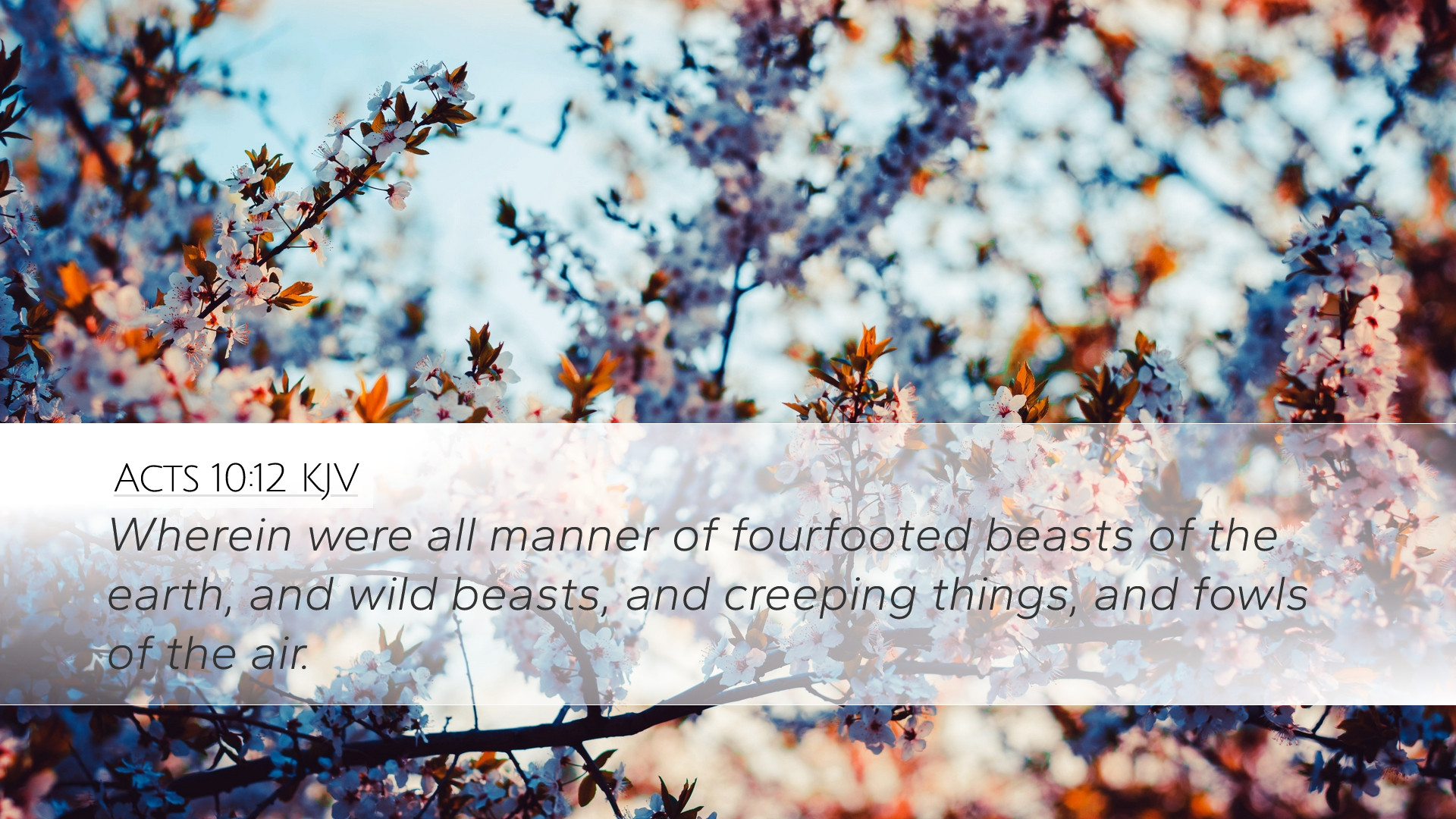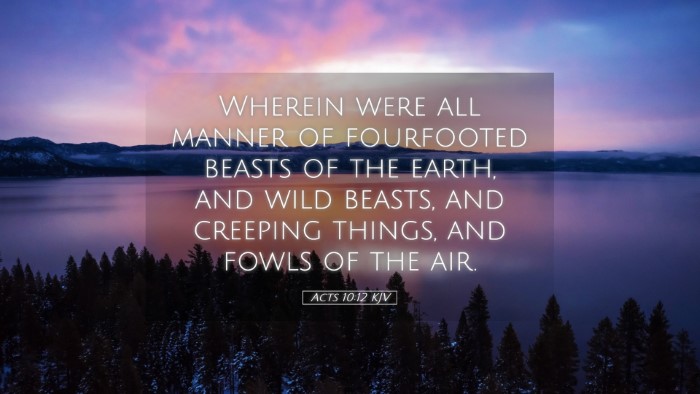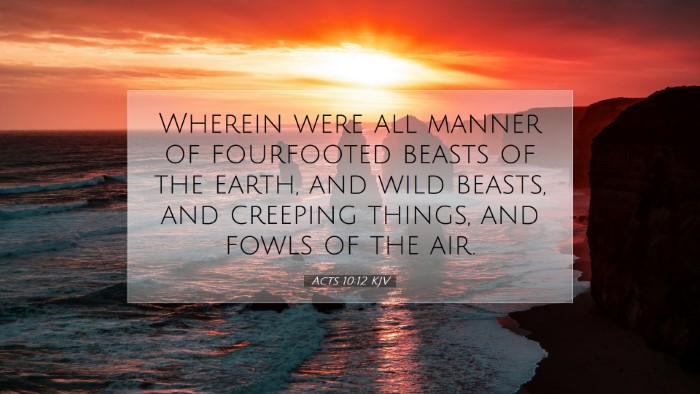Commentary on Acts 10:12
Bible Verse: Acts 10:12 - "In it were all manner of fourfooted beasts of the earth, and wild beasts, and creeping things, and fowls of the air."
Introduction
The passage in Acts 10:12 is a significant moment in biblical history, wherein the Apostle Peter receives a revelation that challenges the existing Jewish dietary laws and paves the way for the inclusion of Gentiles into the Christian faith. This commentary amalgamates insights from well-known public domain biblical scholars Matthew Henry, Albert Barnes, and Adam Clarke to unpack its meaning and implications.
Contextual Analysis
Acts 10 narrates a pivotal moment where Peter, a devout Jew, encounters divine instruction that challenges the boundary markers that have defined God's people. The 'sheet' mentioned in the vision represents a radical shift in the understanding of clean and unclean. This passage transitions from law to grace, culminating in the Church's mission to all nations.
Exegesis of the Text
- Visual Symbolism: The vision of the 'great sheet' signifies the inclusion of all creatures. Matthew Henry notes that the multitude of animals symbolizes the diverse peoples of the world.
- Four-footed Beasts: Albert Barnes highlights that the inclusion of these animals symbolizes what was previously considered unclean. This represents the breaking down of barriers that separate Jews and Gentiles.
- Creeping Things and Fowls: Adam Clarke provides insight into the types of creatures mentioned, emphasizing the broadness of God's salvation plan that extends beyond cultural constraints.
Thematic Insights
- Divine Revelation: Each scholar underscores the significance of divine revelation in Peter's life. Henry suggests that God often uses visions to convey His purposes in unexpected ways.
- Inclusivity of God’s Kingdom: Barnes articulates that this revelation is a precursor to the Gentile mission, illustrating that the Gospel is not limited to one ethnic or racial group.
- Transformation of Understanding: Clark comments on the need for transformation in religious understanding, suggesting that Peter represents the Church's resistance to the inclusion of Gentiles, which is challenged by this revelation.
Theological Implications
The theological implications of Acts 10:12 are profound. The passage signifies a radical transformation in the early Church's understanding of God's covenant. No longer are dietary laws, which were once seen as a means of holiness, the measure of righteousness.
Breaking Down Barriers
Henry notes that the vision illustrates God’s intent to dismantle barriers erected by human tradition. The phrase “all manner” indicates an unrestricted acceptance of those who were previously considered outsiders.
Invitation to View God's Creation
Barnes adds that this moment invites believers to reconsider how they view the created world, emphasizing that God desires the salvation of every creature – not just the chosen few. Clarke highlights that this broad vision corresponds to God's character of grace and mercy.
Practical Application
For pastors, students, theologians, and scholars, the insights from Acts 10:12 present essential truths for modern ministry and mission work.
- Embrace Diversity: The Church today is called to embrace diversity and inclusivity as modeled by the early apostles, recognizing that God’s mercy extends to all people.
- Challenge Preconceptions: This passage encourages believers to challenge their preconceptions about who is included in God's family, fostering open hearts and minds.
- Mission Focused Ministry: The example set by Peter serves as a reminder for churches to be proactive in reaching out to diverse communities, reflecting the nature of God's love.
Conclusion
Acts 10:12 stands as a crucial text in the narrative of the early Church, inviting readers to understand the inclusive nature of God’s redemptive plan. Through the combined insights of Matthew Henry, Albert Barnes, and Adam Clarke, a robust understanding of the text emerges, one that speaks to the heart of Christian mission and community.


